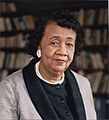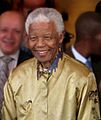Civil rights leaders are amazing people who have worked hard to make sure everyone has political freedom and important rights. They stand up for individuals and groups to protect them from unfair treatment and discrimination by governments or other organizations. Their goal is to help everyone in society be able to take part in public life and have their voices heard.
What are Civil Rights Leaders?
Civil rights leaders are people who inspire and guide others to fight for fairness and equality. They believe that everyone, no matter who they are, should have the same opportunities and be treated with respect. These leaders often challenge unfair laws or practices using peaceful methods, like protests, speeches, and writing. They help create a world where everyone can live freely and participate fully in society.
Famous Civil Rights Leaders Through History
Many brave people throughout history have stepped forward to lead the fight for civil rights. Here are some of the most well-known figures who made a big difference:
- George Mason (1725–1792, USA): He helped write the Virginia Declaration of Rights, which was a big influence on the United States Bill of Rights. This document protects many of the freedoms Americans have today.
- Olympe de Gouges (1748–1793, France): A pioneer for women's rights, she wrote important papers demanding equal rights for women during the French Revolution.
- Elizabeth Freeman (1744–1829, USA): Also known as Mum Bett, she was one of the first formerly enslaved people to win a freedom lawsuit in Massachusetts, helping to end slavery there.
- William Wilberforce (1759–1833, UK): He was a key leader in the movement to end slavery in the British Empire.
- Mary Wollstonecraft (1759–1797, UK): A British writer who argued strongly for the rights of women and men in her famous books.
- Frederick Douglass (1818–1895, USA): Born into slavery, he became a powerful speaker and writer who fought to end slavery and for women's rights.
- Susan B. Anthony (1820–1906, USA): A very important leader in the Women's suffrage movement, helping women gain the right to vote.
- Harriet Tubman (1822–1913, USA): An African-American abolitionist who bravely led many enslaved people to freedom through the Underground Railroad.
- Karl Heinrich Ulrichs (1825–1895, Germany): He was a pioneer in advocating for the rights of people who are gay, helping to start the modern LGBT rights movement.
- Victoria Woodhull (1838–1927, USA): A women's rights leader and suffragette who worked hard for women's voting rights.
- Kate Sheppard (1848–1934, New Zealand): She was a leading suffragist in New Zealand, the first country to allow all women to vote.
- Ida B. Wells (1862–1931, USA): A brave journalist and early activist who fought against racial injustice and for women's voting rights.
- W.E.B. Du Bois (1868–1963, USA): A brilliant writer and scholar who helped found the NAACP, an important organization fighting for civil rights for African Americans.
- Mahatma Gandhi (1869–1948, India): Known as the "Father of India," he led India to independence through peaceful protests and inspired many other civil rights leaders around the world.
- Muhammad Ali Jinnah (1876–1948, Pakistan): A lawyer and politician who founded Pakistan and led the movement for the rights of Muslims in the Indian subcontinent.
- Eleanor Roosevelt (1884–1962, USA): She was a strong advocate for women's rights and human rights, both in the United States and at the United Nations.
- Alice Paul (1885–1977, USA): A key leader and strategist in the Women's Voting Rights Movement.
- B. R. Ambedkar (1891–1956, India): A social reformer and scholar who helped draft the Constitution of India and fought for women's rights and against discrimination.
- Nelson Mandela (1918–2013, South Africa): A statesman and leading figure in the Anti-Apartheid Movement in South Africa, fighting against racial segregation.
- Betty Friedan (1921–2006, USA): A writer and women's rights activist who helped start the modern feminist movement.
- Frank Kameny (1925–2011, USA): A brave activist who fought for gay rights in the United States.
- Malcolm X (1925–1965, USA): An influential speaker and activist who inspired many in the civil rights movement.
- Rosa Parks (1913–2005, USA): Her refusal to give up her bus seat sparked the Montgomery bus boycott, a major event in the American Civil Rights Movement.
- Martin Luther King Jr. (1929–1968, USA): A co-founder and leader of the Southern Christian Leadership Conference (SCLC), he was a powerful speaker and activist who led the American Civil Rights Movement using nonviolent methods.
- Elie Wiesel (1928–2016, USA): A writer and Holocaust survivor who became a powerful voice for Jewish rights and human rights around the world.
- Desmond Tutu (1931–2021, South Africa): An anti-apartheid leader and advocate, he was the first black archbishop of Cape Town.
- James Bevel (1936–2008, USA): A key organizer and strategist in the SCLC, known for his leadership in direct action protests.
- Harvey Milk (1930–1978, USA): A politician and gay rights activist who worked for the rights of the LGBT community.
- Marsha P. Johnson (1945–1992, USA): A gay liberation and AIDS activist who helped found STAR, an organization supporting transgender youth.
- Sylvia Rivera (1951–2002, USA): A gay liberation and transgender rights activist who co-founded STAR.
- Malala Yousafzai (1997–present, Pakistan): A young advocate for girls' education who won the Nobel Peace Prize for her bravery.
See also
Images for kids























